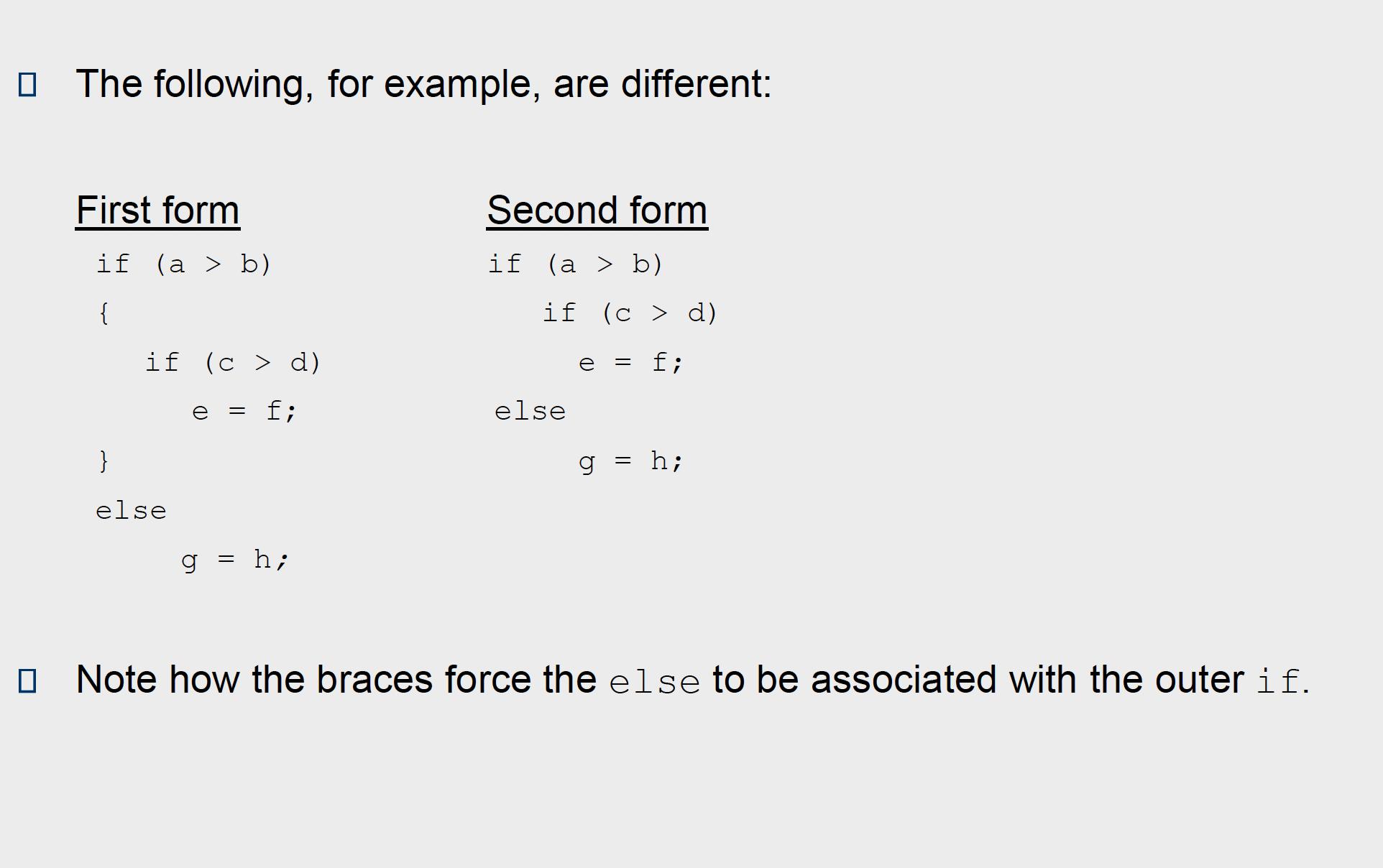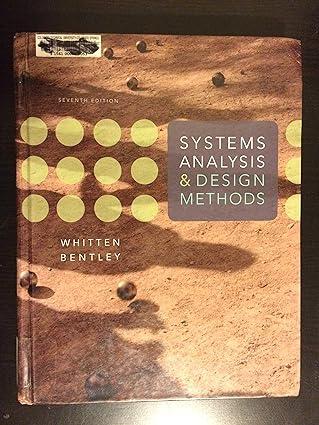Question
The following, for example, are different: First form if (a > b) { if (c > d) (1) e = f; } else =

The following, for example, are different: First form if (a > b) { if (c > d) (1) e = f; } else = g h; Second form if (a > b) if (cd) f; e = else g = h; Note how the braces force the else to be associated with the outer if.
Step by Step Solution
3.45 Rating (152 Votes )
There are 3 Steps involved in it
Step: 1
Yes you are correct In the first form if the condition a b is false the else statement will ...
Get Instant Access to Expert-Tailored Solutions
See step-by-step solutions with expert insights and AI powered tools for academic success
Step: 2

Step: 3

Ace Your Homework with AI
Get the answers you need in no time with our AI-driven, step-by-step assistance
Get StartedRecommended Textbook for
Systems Analysis And Design Methods
Authors: Jeffrey Whitten, Lonnie Bentley
7th Edition
0073052337, 978-0073052335
Students also viewed these Programming questions
Question
Answered: 1 week ago
Question
Answered: 1 week ago
Question
Answered: 1 week ago
Question
Answered: 1 week ago
Question
Answered: 1 week ago
Question
Answered: 1 week ago
Question
Answered: 1 week ago
Question
Answered: 1 week ago
Question
Answered: 1 week ago
Question
Answered: 1 week ago
Question
Answered: 1 week ago
Question
Answered: 1 week ago
Question
Answered: 1 week ago
Question
Answered: 1 week ago
Question
Answered: 1 week ago
Question
Answered: 1 week ago
Question
Answered: 1 week ago
Question
Answered: 1 week ago
Question
Answered: 1 week ago
Question
Answered: 1 week ago
View Answer in SolutionInn App



